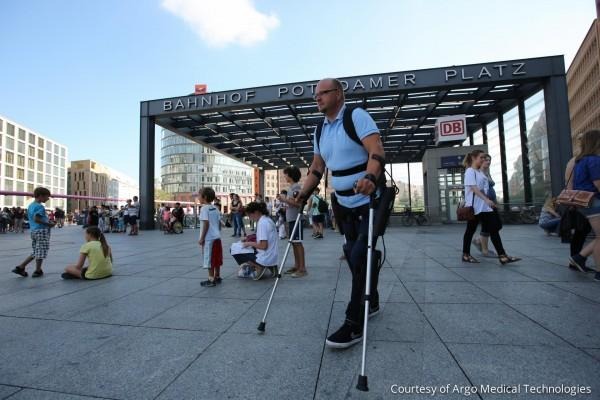ReWalk is the first FDA-approved personal exoskeleton
If you're still not used to seeing electric wheelchairs, robotic prosthetics, and other forms of hi-tech assistive technology in public places, it would be best to catch up with the times as a new one just joined the list. The US Food and Drug Administration has just given the thumb up to the ReWalk Personal exoskeleton, paving the way for similar machines that will help those who have lost mobility to get back on their feet.
For sure, ReWalk isn't the only robotic exoskeleton machine out there. There have been various prototypes and finished products over the years, some built for medical purposes, other for less peaceful designs. ReWalk, however, now enjoys the distinction of being the first, and so far only, to be approved by the government body for personal use, jumpstarting the entry of the machine into the commercial market. The FDA recognized the utility of such machines in providing those who have lost their ability to walk around due to spinal cord injury to regain some amount of mobility.

The FDA defines an exoskeleton like ReWalk as a motorized device worn over the legs and part of the upper body that will help the wearer sit, stand, and walk. This indeed the basic description of the ReWalk, but fortunately the actual machine won't remind you of sci-fi juggernauts or bulky military equivalents. It does weigh 46 lbs itself and has a 5-lb backpack which houses the brains and battery of the exoskeleton. As for those brains, it runs on Windows and responds to physical buttons on a wrist device. ReWalk Robotics, the company behind the machine, advertises the battery to last a whole day with on and off walking, but continuous mobility will drain it in three or four hours.
Although the ReWalk Personal has been cleared for home use, it doesn't necessarily mean people will start falling all over in line for it. For one, it carries a price tag as heavy as the machine itself. At $69,500, it something that not just any paraplegic or handicapped person can afford. It also has some height and weight requirements, as the exoskeleton has to be able to support the bodies of its users. At the moment, it is fit those between 5 feet 3 inches and 6 feet 3 inches in height and under 220 lbs in weight. And even should they meet financial and physiological requirements, users will have to undergo 15 training sessions to make sure they are capable of operating the exoskeleton before they are cleared to use it.
That situation, especially the price tag, could very well change soon, thanks to this FDA approval. Now that the ReWalk is cleared of any legal and medical impediments, the company can confidently approach insurers and health care coverage providers to help those who are eligible but can't easily afford an exoskeleton to get one and break free of their physical conditions.
VIA: Mashable
